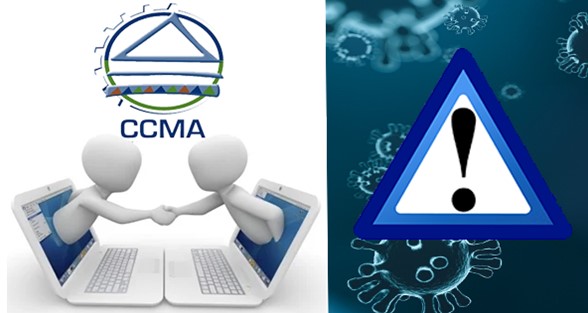Increasing Your Chances of Passing: FAQs About CCMA
If you’re preparing for the CCMA exam, setting yourself up for success is essential. Whether you’re applying as a Medical Assistant with relevant work experience or a recent graduate, there are certain things you can do to increase your chances of passing the exam on your first try.
What is a CCMA?
CCMA certification gives medical assistants the skills and knowledge necessary to perform various job duties. CCMAs are in charge of administrative tasks like appointment scheduling and patient record maintenance in addition to providing clinical patient care. A CCMA exam is a closed-book exam comprising 180 questions (150 scored and 30 unscored). The exam is given at pre-decided test-taking facilities and takes three hours. It is recommended that CCMA candidates study for about three to six months before taking the exam. Looking for a significant exam requires regular and consistent effort, so schedule time each week for studying. Remove all distractions during these periods and focus on the areas you may be less confident in. Doing this will help prevent procrastination and cramming for the last minute, which can lead to a lower score on the exam.
How do I become a CCMA?
Before you start working towards a career as a CCMA, think about your professional goals. Do you want to interact with patients and work in a fast-paced environment, or would you prefer more administrative medical tasks? To become a CCMA, you must complete an accredited medical assistant program that lasts from 4 months to a year. Then, you will need to take the CCMA exam. This test consists of 180 questions, 150 of which are scored and 30 of which are pretest. The exam is given at pre-decided testing centers or NHA-accredited schools and must be taken under a proctor. Prepare for the CCMA exam by reading study guides and taking practice quizzes. Then, schedule study sessions and remove distractions to focus on studying. The NHA also provides a CCMA exam outline and sample questions to help you prepare for the test. You can find these resources on the NHA website.
What are the requirements to become a CCMA?
To become a CCMA, one must complete a certified medical assistant program and pass the national certification exam. You must also have the technical abilities to operate equipment like blood pressure monitors and IV pumps. Sleep and hydration are critical components of a successful CCMA exam preparation. It’s also helpful to find a quiet place to study without distractions. It’s a good idea to take the practice exam multiple times and focus on the areas where you are less confident. The CCMA exam lasts three hours and contains 150 scored and 30 unscored questions. The pass rate is 77%. If you fail the test, you must wait a year to try again. If you fail, you’ll receive a diagnostic report showing the specific topics you missed and how much you need to improve. The retake fee is $155. The CCMA exam is offered at NHA-affiliated testing centers and schools and online with a live proctor.
What are the benefits of becoming a CCMA?
CCMAs and CMAs work with blood, urine, germs, and other potentially hazardous substances daily. They take safety precautions such as properly putting on and removing gloves, labeling vials accurately, and regularly sanitizing surfaces. It ensures the health and well-being of themselves, their patients, and other medical professionals working in the same area.
Depending on your facility or clinic, a CCMA certification can open up new job opportunities and advancement options. The certificate can also give you a leg up when applying for medical assistant positions with other hospitals or healthcare facilities. Schedule a weekly time to study and remove distractions to ensure you pass the CCMA exam on your first attempt. Additionally, dividing the syllabus into different sections and dedicating more time to areas where you feel weaker is a great way to prepare for the exam. It helps to prevent procrastination and last-minute cramming.
Read Also: Tips to Manage the Symptoms of Diabetic Neuropathy

